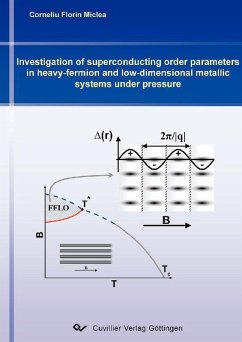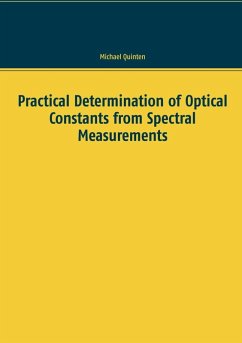
Determination of a suitable mud window under HM and THM-coupled conditions in real-time (eBook, PDF)
Sofort per Download lieferbar
Statt: 34,10 €**
23,87 €
inkl. MwSt. und vom Verlag festgesetzt.
**Preis der gedruckten Ausgabe (Broschiertes Buch)
Weitere Ausgaben:

PAYBACK Punkte
0 °P sammeln!
This study proposes solutions to determine a suitable mud pressure gradient window in real-time considering the HM- and THM-coupled effects. Six boundaries (FG, SFG, PPG, MHSG, RTFG and VSG) were employed to determine the mud pressure windows based on the failure mechanism of borehole wall. Models were developed to calculate the FG, SFG, and RTFG for different rocks under HM- and THM-coupled conditions. Sensitivity analyses were undertaken to categorize the input parameters into three groups, which were “must-have”, “high-sensitive” and “low-sensitive”...
This study proposes solutions to determine a suitable mud pressure gradient window in real-time considering the HM- and THM-coupled effects. Six boundaries (FG, SFG, PPG, MHSG, RTFG and VSG) were employed to determine the mud pressure windows based on the failure mechanism of borehole wall. Models were developed to calculate the FG, SFG, and RTFG for different rocks under HM- and THM-coupled conditions. Sensitivity analyses were undertaken to categorize the input parameters into three groups, which were “must-have”, “high-sensitive” and “low-sensitive” groups. To carry out a mud pressure window calculation in real-time, the “must-have” and “high-sensitive” parameters should be determined from logging data. The existing and relevant methods and empirical equations for calculating the UCS, IFA and PPG using logging data were analyzed and evaluated. Three methods for computing Biot’s coefficient using logging data were developed. Two methods to estimate the horizontal in-situ stresses were also developed, one method was based on analyzing the breakout shape, and the other based on shear wave splitting. To investigate the thermal effects, a semi-analytical method was developed to simulate the depth-dependent temperature profiles in the annulus, tubing and surrounding rocks. Finally, two case studies were undertaken to verify the whole solutions of a suitable mud pressure window in real-time.
Dieser Download kann aus rechtlichen Gründen nur mit Rechnungsadresse in A, B, BG, CY, CZ, D, DK, EW, E, FIN, F, GR, HR, H, IRL, I, LT, L, LR, M, NL, PL, P, R, S, SLO, SK ausgeliefert werden.













